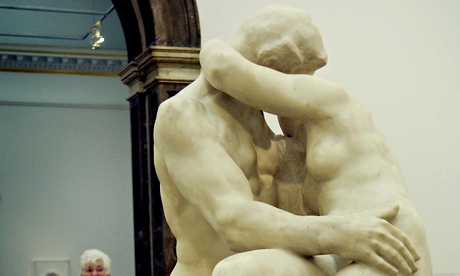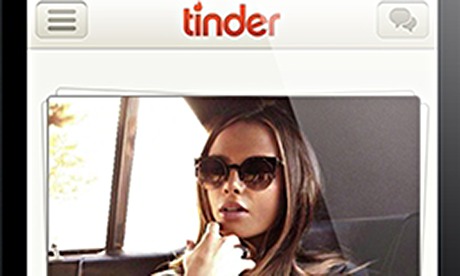In the Summer of 2012, Chris McKinlay was finishing his maths dissertation at the University of California in Los Angeles. It meant a lot of late nights as he ran complex calculations through a powerful supercomputer in the early hours of the morning, when computing time was cheap. While his work hummed away, he whiled away time ononline dating sites, but he didn't have a lot of luck – until one night, when he noted a connection between the two activities.
One of his favourite sites, OkCupid, sorted people into matches using the answers to thousands of questions posed by other users on the site.
"One night it started to dawn on me the way that people answer questions on OkCupid generates a high dimensional dataset very similar to the one I was studying," says McKinlay, and it transformed his understanding of how the system worked. "It wasn't like I didn't like OkCupid before, it was fine, I just realised that there was an interesting problem there."
McKinlay started by creating fake profiles on OkCupid, and writing programs to answer questions that had also been answered by compatible users – the only way to see their answers, and thus work out how the system matched users. He managed to reduce some 20,000 other users to just seven groups, and figured he was closest to two of them. So he adjusted his real profile to match, and the messages started rolling in.
McKinlay's operation was possible because OkCupid, and so many other sites like it, are much more than just simple social networks, where people post profiles, talk to their friends, and pick up new ones through common interest. Instead, they seek to actively match up users using a range of techniques that have been developing for decades.
Every site now makes its own claims to "intelligent" or "smart" technologies underlying their service. But for McKinlay, these algorithms weren't working well enough for him, so he wrote his own. McKinlay has since written a book Optimal Cupid about his technique, while last year Amy Webb, a technology CEO herself, published Data, a Love Story documenting how she applied her working skills to the tricky business of finding a partner online.
Two people, both unsatisfied by the programmes on offer, wrote their own; but what about the rest of us, less fluent in code? Years of contested research, and moral and philosophical assumptions, have gone into creating today's internet dating sites and their matching algorithms, but are we being well served by them? The idea that technology can make difficult, even painful tasks – including looking for love – is a pervasive and seductive one, but are their matchmaking powers overstated?
 The Kiss, 1901-4, by sculptor Auguste Rodin. Photograph: Sarah Lee for the Guardian
The Kiss, 1901-4, by sculptor Auguste Rodin. Photograph: Sarah Lee for the Guardian
In the summer of 1965, a Harvard undergraduate named Jeff Tarr decided he was fed up with the university's limited social circle. As a maths student, Tarr had some experience of computers, and although he couldn't program them himself, he was sure they could be used to further his primary interest: meeting girls. With a friend he wrote up a personality quiz for fellow students about their "ideal date" and distributed it to colleges across Boston. Sample questions included: "Is extensive sexual activity [in] preparation for marriage, part of 'growing up?'" and "Do you believe in a God who answers prayer?" The responses flooded in, confirming Tarr's suspicion that there was great demand for such a service among the newly liberated student population. Operation Match was born.
In order to process the answers, Tarr had to rent a five-ton IBM 1401 computer for $100 an hour, and pay another classmate to program it with a special matching operation. Each questionnaire was transferred to a punch-card, fed into the machine, and out popped a list of six potential dates, complete with address, phone number and date of graduation, which was posted back to the applicant. Each of those six numbers got the original number and five others in their response: the program only matched women with their ideal man if they fitted his ideal too.
When Gene Shalit, a reporter from Look magazine, arrived to cover the emerging computer-dating scene in 1966, Operation Match claimed to have had 90,000 applications and taken $270,000 in revenue. Even at the birth of the computer revolution, the machine seemed to have an aura about it, something which made its matches more credible than a blind date or a friend's recommendation. Shalit quoted a freshman at Brown University who had dumped her boyfriend but started going out with him again when Operation Match sent her his number. "Maybe the computer knows something that I don't know," she said. Shalit imbued it with even more weight, calling it "The Great God Computer".
The computer-dating pioneers were happy to play up to the image of the omniscient machine – and were already wary of any potential stigma attached to their businesses. "Some romanticists complain that we're too commercial," Tarr told reporters. "But we're not trying to take the love out of love; we're just trying to make it more efficient. We supply everything but the spark." In turn, the perceived wisdom of the machine opened up new possibilities for competition in the nascent industry, as start-up services touted the innovative nature of their programs over others. Contact, Match's greatest rival, was founded by MIT graduate student David DeWan and ran on a Holywell 200 computer, developed in response to IBM's 1401 and operating two to three times faster. DeWan made the additional claim that Contact's questions were more sophisticated than Match's nationwide efforts, because they were restricted to elite college students. In essence, it was the first niche computer-dating service.
Over the years since Tarr first starting sending out his questionnaires, computer dating has evolved. Most importantly, it has become online dating. And with each of these developments – through the internet, home computing, broadband, smartphones, and location services – the turbulent business and the occasionally dubious science of computer-aided matching has evolved too. Online dating continues to hold up a mirror not only to the mores of society, which it both reflects, and shapes, but to our attitudes to technology itself.
The American National Academy of Sciences reported in 2013 that more than a third of people who married in the US between 2005 and 2012 met their partner online, and half of those met on dating sites. The rest met through chatrooms, online games, and elsewhere. Preliminary studies also showed that people who met online were slightly less likely to divorce and claimed to be happier in their marriages. The latest figures from online analytics company Comscore show that the UK is not far behind, with 5.7 million people visiting dating sites every month, and 49 million across Europe as a whole, or 12% of the total population. Most tellingly for the evolution of online dating is that the biggest growth demographic in 2012 was in the 55+ age range, accounting for 39% of visitors. When online dating moves not only beyond stigma, but beyond the so-called "digital divide" to embrace older web users, it might be said to have truly arrived.
It has taken a while to get there. Match.com, founded in 1993, was the first big player, is still the biggest worldwide, and epitomises the "online classifieds" model of internet dating. Match.com doesn't make any bold claims about who you will meet, it just promises there'll be loads of them. eHarmony, which followed in 2000, was different, promising to guide its users towards long-term relationships – not just dating, but marriage. It believed it could do this thanks to the research of its founder, Neil Clark Warren, a then 76-old psychologist and divinity lecturer from rural Iowa. His three years of research on 5,000 married couples laid the basis for a truly algorithmic approach to matching: the results of a 200-question survey of new members (the "core personality traits"), together with their communication patterns which were revealed while using the site.
Whatever you may think of eHarmony's approach – and many contest whether it is scientifically possible to generalise from married people's experiences to the behaviour of single people – they are very serious about it. Since launch, they have surveyed another 50,000 couples worldwide, according to the current vice-president of matching, Steve Carter. When they launched in the UK, they partnered with Oxford University to research 1,000 British couples "to identify any cultural distinctions between the two markets that should be represented by the compatibility algorithms". And when challenged by lawsuits for refusing to match gay and lesbian people, assumed by many to be a result of Warren's conservative Christian views (his books were previously published in partnership with the conservative pressure group, Focus on the Family), they protested that it wasn't morality, but mathematics: they simply didn't have the data to back up the promise of long-term partnership for same-sex couples. As part of a settlement in one such lawsuit, eHarmony launched Compatible Partners in 2009.
Carter says: "The Compatible Partners system is now based on models developed using data collected from long-term same-sex couples." With the rise of Facebook, Twitter, and celebrity-driven online media, have come more personalised and data-driven sites such as OkCupid, where Chris McKinlay started his operation. These services rely on the user supplying not only explicit information about what they are looking for, but a host of assumed and implicit information as well, based on their morals, values, and actions. What underlies them is a growing reliance not on stated preferences – for example, eHarmony's 200-question surveys result in a detailed profile entitled "The Book of You" – but on actual behaviour; not what people say, but what they do.
In 2007, Gavin Potter made headlines when he competed successfully in the Netflix Prize, a $1m competition run by the online movie giant to improve the recommendations its website offered members. Despite competition from teams composed of researchers from telecoms giants and top maths departments, Potter was consistently in the top 10 of the leaderboard. A retired management consultant with a degree in psychology, Potter believed he could predict more about viewers' tastes from past behaviour than from the contents of the movies they liked, and his maths worked. He was contacted by Nick Tsinonis, the founder of a small UK dating site called yesnomayb, who asked him to see if his approach, called collaborative filtering, would work on people as well as films.
Collaborative filtering works by collecting the preferences of many people, and grouping them into sets of similar users. Because there's so much data, and so many people, what exactly the thing is that these groups might have in common isn't always clear to anyone but the algorithm, but it works. The approach was so successful that Tsinonis and Potter created a new company, RecSys, which now supplies some 10 million recommendations a day to thousands of sites. RecSys adjusts its algorithm for the different requirements of each site – what Potter calls the "business rules" – so for a site such as Lovestruck.com, which is aimed at busy professionals, the business rules push the recommendations towards those with nearby offices who might want to nip out for a coffee, but the powerful underlying maths is Potter's. Likewise, while British firm Global Personals provides the infrastructure for some 12,000 niche sites around the world, letting anyone set up and run their own dating website aimed at anyone from redheads to petrolheads, all 30 million of their users are being matched by RecSys. Potter says that while they started with dating "the technology works for almost anything". RecSys is already powering the recommendations for art discovery site ArtFinder, the similar articles search on research database Nature.com, and the backend to a number of photography websites. Of particular interest to the company is a recommendation system for mental health advice site Big White Wall. Because its users come to the site looking for emotional help, but may well be unsure what exactly it is they are looking for, RecSys might be able to unearth patterns of behaviour new to both patients and doctors, just as it reveals the unspoken and possibly even unconscious proclivities of daters.
 Tinder is a new dating app on smartphones.
Tinder is a new dating app on smartphones.
Back in Harvard in 1966, Jeff Tarr dreamed of a future version of his Operation Match programme which would operate in real time and real space. He envisioned installing hundreds of typewriters all over campus, each one linked to a central "mother computer". Anyone typing their requirements into such a device would receive "in seconds" the name of a compatible match who was also free that night. Recently, Tarr's vision has started to become a reality with a new generation of dating services, driven by the smartphone.
Suddenly, we don't need the smart algorithms any more, we just want to know who is nearby. But even these new services sit atop a mountain of data; less like Facebook, and a lot more like Google.
Tinder, founded in Los Angeles in 2012, is the fastest-growing dating app on mobile phones but its founders don't like calling it that. According to co-founder and chief marketing officer Justin Mateen, Tinder is "not an online dating app, it's a social network and discovery tool".
He also believes that Tinder's core mechanic, where users swipe through Facebook snapshots of potential matches in the traditional "Hot or Not" format, is not simple, but more sophisticated: "It's the dynamic of the pursuer and the pursued, that's just how humans interact." Tinder, however, is much less interested in the science of matching up couples than its predecessors. When asked what they have learned about people from the data they have gathered, Mateen says the thing he is most looking forward to seeing is "the number of matches that a user needs over a period of time before they're addicted to the product" – a precursor of Tinder's expansion into other areas of ecommerce and business relationships.
Tinder's plans are the logical extension of the fact that the web has really turned out to be a universal dating medium, whatever it says on the surface. There are plenty of sites out there deploying the tactics and metrics of dating sites without actually using the D-word. Whether it's explicit – such as Tastebuds.fm, which matches up "concert buddies" based on their Spotify music tastes – or subtle, the lessons of dating research have been learned by every "social" site on the web. Nearly every Silicon Valley startup video features two photogenic young people being brought together, whatever the product, and the same matching algorithms are at work whether you're looking for love, a jobbing plumber, or a stock photograph.
Over at UCLA, Chris McKinlay's strategy seems to have paid off. After gathering his data and optimising his profile, he started receiving 10-12 unsolicited messages every day: an unheard of figure online, where the preponderance of creeps tends to put most women on the defensive. He went on 87 dates, mostly just a coffee, which "were really wonderful for the most part". The women he met shared his interests, were "really intelligent, creative, funny" and there was almost always some attraction. But on the 88th date, something deeper clicked. A year later, he proposed.
Online dating has always been in part about the allure and convenience of the technology, but it has mostly been about just wanting to find "the one". The success of recommendation systems ,which are just as applicable to products as people, says much about the ability of computers to predict the more fundamental attractions that would have got McKinlay there sooner – his algorithms improved his ability to get dates, but not much on the likelihood of them progressing further.
In the end, the development of online dating tells us more about our relationship with networked technology than with each other: from "the Great God Computer", to a profusion of data that threatens to overwhelm us, to the point where it is integrated, seamlessly and almost invisibly, with every aspect of our daily lives.







 61 Comments
61 Comments